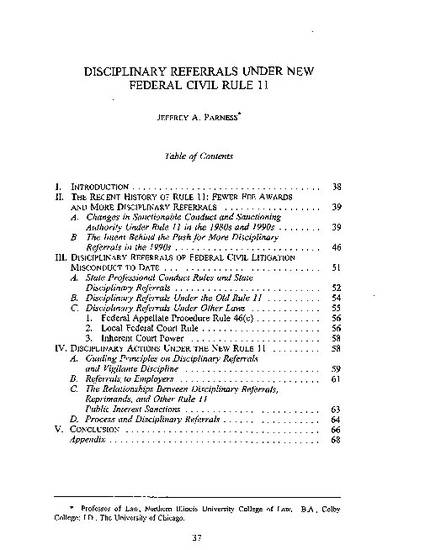
The 1983 amendments to Federal Civil Procedure Rule 11, concerning sanctions for frivolous litigation papers, prompted much controversy and satellite litigation. By the latter 1980s many called for further changes to the "stop and think" rule. Amendments took effect on December 1, 1993. The new rule reduces a party's incentives to pursue sanctions because fewer types of misconduct are sanctionable. Additionally, attorney's fees are available less often even when sanctions are warranted because more public interest remedies, like reprimands, fines, orders of continuing education, and disciplinary referrals, are favored. This Article will focus on bar disciplinary referrals under the new rule. While the 1993 rule expressly invites more disciplinary referrals, it provides little guidance on their procedural or substantive guidelines. The 1993 rule is not clear on which recipient agencies are contemplated for the referrals, or when and what forms of "vigilante" discipline would be appropriate as alternatives, or supplements, to these referrals. Further, many state disciplinary agencies are not well prepared to handle a flood of Rule 11 referrals. The Article will addresses these issues, and then offers suggestions on the relationship between disciplinary referrals and other available sanctions under Rule 11.